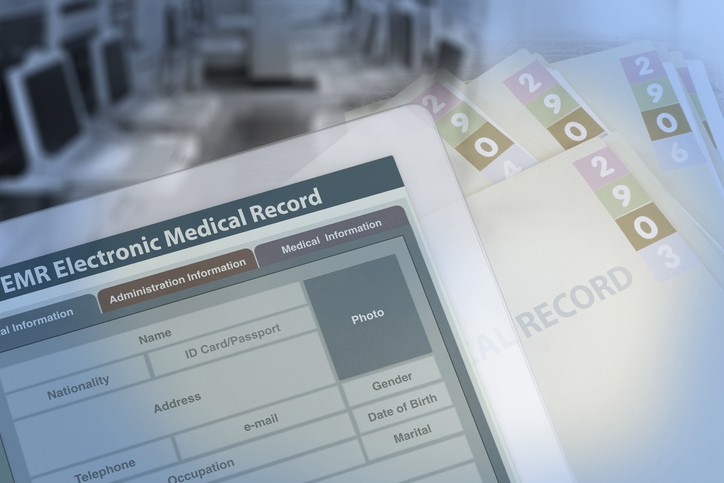Joint Commission discharge summary reviews are a standard part of the survey agenda for both psychiatric hospitals and behavioral health organizations. Frequently, surveyors cite deficiencies in this area on the survey report. So, let’s review the key requirements to help you be survey-ready.
Joint Commission Discharge Summary Requirements for Psychiatric Hospitals
Record of Care standard RC.02.04.01 EP 3 in the Hospital manual lists the requirements for a discharge summary. Specifically, it must include:
- The reason for hospitalization
- The procedures performed
- The care, treatment, and services provided
- The patient’s condition and disposition at discharge
- Information provided to the patient and family
- Provisions for follow-up care
In addition, psychiatric hospitals that use TJC accreditation for deemed status must comply with CMS Condition of Participation: Special Medical Record Requirements for Psychiatric Hospitals.
Under this CoP, standard A-1672 requires that the discharge summary “include information about the status of the patient on the day of discharge including psychiatric, physical and functional condition.”
Survey Challenges
TJC Hospital survey reports frequently cite discharge summaries for not including all of these three required elements. For example:
“Surveyor observed during closed record review that the discharge summary did not address functional and medical status.”
“The psychiatric, physical and functional condition did not give a concise description at discharge. The documentation said “good” or “improved.”
Sometimes, surveyors also cite issues about information missing from the discharge summary. For instance, that it didn’t include reference to events such as ER visits, restraints/seclusions, and significant injuries during the course of treatment. Some examples:
“The patient’s discharge summary did not include a concise recapitulation of the course of hospital treatment. Missing was the patient’s restraints and a transfer to an emergency department.”
“The discharge summaries of 3 patients transferred to a medical hospital did not mention these significant events within the course of treatment.”
Most recently (and somewhat surprisingly) we’ve seen findings that the discharge summary didn’t include the patient’s post-discharge arrangements. For example: “In 4 of 4 patient records reviewed, surveyor observed that the discharge summary did not contain the follow-up appointment information.”
For this particular finding, we helped the organization submit a Clarification to TJC. Our rationale was that the patient’s post discharge information was contained in the discharge plan and the discharge instructions.
Unfortunately, TJC did not accept that Clarification. So, we’ll continue to monitor survey reports and see if this type of finding becomes a trend.
Joint Commission Discharge Summary Requirements for Behavioral Healthcare Organizations
For organizations accredited under the Behavioral Health Care & Human Services standards, the analogous standard is RC.02.04.01 EP 3. It lists the following requirements for the discharge summary:
The clinical/case record contains the following:
- A concise discharge summary that includes the reason(s) for acceptance for care, treatment, or services
- The care, treatment, or services provided
- The condition at discharge of the individual served
- Information provided to the individual served and their family (for example, written discharge instructions; medication taken by the individual; follow-up care, treatment, or services)
Note 1: A discharge summary is not required when individuals are seen for brief interventions or services. In these instances, a final progress note may substitute for the discharge summary.
Note 2: When individuals transfer to a different program within the organization, and staff change, a transfer summary may substitute for the discharge summary. If the staff do not change, a progress note may substitute for the discharge summary.
Thus, the requirements in the BH manual are similar to the Hospital manual. However, they don’t include the requirement for describing psychiatric, physical and functional condition at discharge.
Also, they allow more flexibility for documenting brief interventions and transfers within the organization. In those instances, they allow for a progress note or transfer summary. (See Notes 1 and 2 above.)
The most common survey finding for discharge summaries in behavioral healthcare organizations relates to timeliness. Surveyors find the discharge summaries are not completed within the timeframe defined by the organization.
What to Do Now
First, we recommend you format your discharge summary template to include sections and prompts for the specific Joint Commission discharge summary requirements. Second, educate your staff to the details of these requirements.
Next, include a review of discharge summary documentation in your medical record audit process. Review the results in your PI Committee and see where you may need to make changes. Last, for medical staff providers, use the audit results as data for their Ongoing Professional Practice Evaluation.
Additional Guidance on Discharge Summaries
For additional information on Joint Commission requirements related to discharge, see our earlier posts:
- NPSG.15.01.01 Suicide Risk Reduction: Safety Planning at Discharge
- Medication Instructions at Discharge
Barrins & Associates Consultation
When we conduct our Mock Surveys we include a review of discharge summaries during our Closed Record Review Session. As always, we’re committed to keeping you up to speed on Joint Commission standards and survey process – including best practices for compliance.


